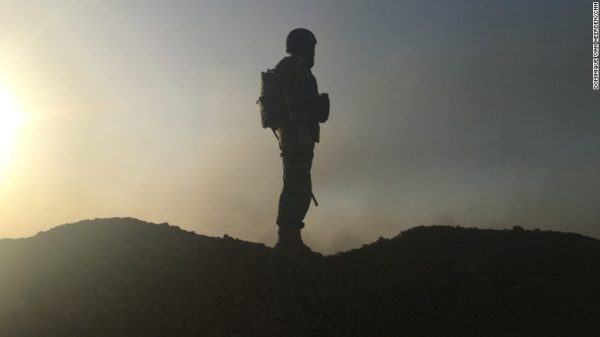News that the town was poised to be recaptured from the terrorists sparked jubilation among Christians who had fled, with many dancing and singing in the city of Arbil.
Christians once formed a significant minority of Iraq’s mainly Muslim population but mounting sectarian attacks against them since the US-led invasion of 2003 have sent their numbers plummeting.
In June 2014, terrorists led by Daesh seized control of Mosul and ordered the northern city’s Christian community to convert to Islam, pay a special tax, leave or face execution.
Weeks later, the terrorists swept through Qaraqosh and the rest of the Nineveh Plain east of Mosul, where an estimated 120,000 Christians lived, forcing all of them to leave their homes.
More than two years later, Iraqi forces are reconquering those areas as they mount a much-delayed operation to retake Mosul, now the only major urban hub in Daesh’s shrinking “caliphate”.
Here are some facts about Christians in Iraq:
- The Christian population includes Chaldean, Assyrian, Armenian and Syriac communities, but it is a shadow of what it used to be once numbering more than a million nationwide, with upwards of 600,000 in Baghdad alone, there are now fewer than 350,000 in the country.
- Before 2003, Christians living in Iraq’s second city of Mosul numbered 60,000, but that had dropped to a few thousand in 2014. They all left a few days after Daesh occupied the city.
- Of the 120,000 Christians who fled the August 2014 Daesh offensive in the Nineveh Plain, around 20,000 have left the country and around 50,000 of those who remained in Iraq currently live in the Kurdish regional capital Arbil.
- Iraq’s Christian communities are among the world’s oldest. Some speak a form of Aramaic, a language thought to have been spoken by Jesus Christ.
- The Assyrians are followers of the Church of the East while the Chaldeans use the same rite but are in communion with the Roman Catholic Church.
- The Armenians and most Syriacs follow branches of the Oriental Orthodox Church. There is also a Syriac Catholic Church.
- Like other Iraqi minorities, Christians have often been the target of attacks by extremists. Kidnappings, shootings and church bombings have driven thousands abroad or forced them to flee to other parts of the country.
- Iraq is also home to a small community of Mandaean Sabaeans. They are not considered Christians and practise one of the world’s oldest surviving Gnostic religions but they worship John the Baptist as their central prophet.
- Now-executed president Saddam Hussain’s deputy prime minister, Tareq Aziz, was from a Chaldean Catholic family and one of Iraq’s best known Christians. Aziz, who died while on death row last year, was baptised as Manuel Christo.

















